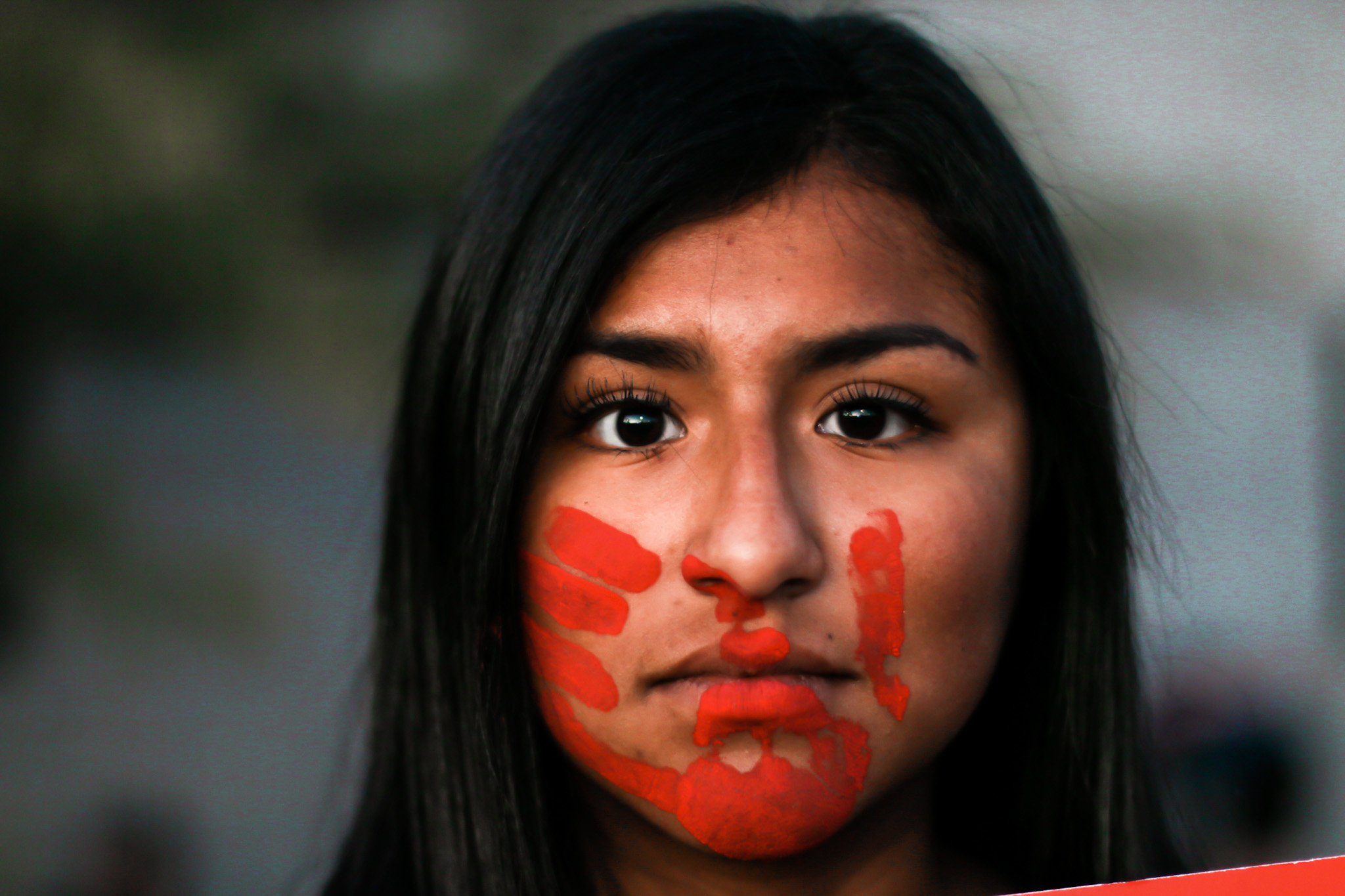President Trump proclaimed November to be Native American Heritage Month, according to a White House proclamation.
Many members of the Native American community, however, don’t think the government is doing enough for their community.
Over the past few years, numerous murder cases within self-governed Native American communities have gone cold because law enforcement in the area hasn’t worked to solve them.
As a result, organizations and members of these Native American communities have protested to bring awareness to the Murdered and Missing Indigenous Women (MMIW) movement.
Law enforcement agencies don’t report half of all murders that occur in self-governed Native American communities to the FBI, according to the Murder Accountability Project.
“Native Americans are the minority of all minorities. We are the most forgotten and dehumanized population,” said Micaela Ramirez, a public relations officer for IndiGenius.
Ramirez, 21, is a citizen of the Tohono O’odham Nation from the Pisinemo district and was not surprised by the statistics of cold cases in the Native American community.
There is a miscommunication between federal and tribal governments in terms of deciding who has jurisdiction over certain crimes, Ramirez said.
The data gaps that exist in identifying crime trends in Indian Country impact how law enforcement officials handle or follow up on cases, said Charles Addington, deputy bureau director for the Office of Justice Services in a statement directed to the Subcommittee for Indigenous Peoples of the United States.
“It is imperative that we continue to work in partnership and create safe communities and arrest the trend of issues plaguing our Native communities,” Addington said in his statement.
In response to the data gap, President Trump signed Executive Order 13898 on November 26, 2019.
The order implemented a task force, Operation Lady Justice, aimed to “enhance the operation of the criminal justice system and address the legitimate concerns of American Indian and Alaska Native communities regarding missing and murdered people,” according to the Operation Lady Justice website.

As part of this task force, seven offices will be established throughout the country, one of which will be in the Gila River Indian Community in Arizona, according to the U.S. Department of the Interior Indian Affairs website.
“It’s not always going to benefit [the Native American community] the way we think it’s going to,” Charolette Lily Gonzales said about the task force.
Gonzales, 19, is a member of the Navajo Nation and is skeptical of the task force being valuable to the actual cause of MMIW.
“Our criminal justice system is completely corrupt,” Gonzales said.
Gonzales said her mistrust in the criminal justice system stems from the death of her cousin who was missing for three weeks before her body was discovered about a year and a half ago.
The investigation on the death of her cousin has been on-going since the body was found, but the family has received no information, Gonzales said.
“No change is going to happen until everybody stops seeing it as a ‘their’ problem rather than an ‘us’ problem,” Gonzales said.
Media attention in regards to the MMIW needs to increase in platforms other than that of Native American platforms, just like Native Americans support other oppressed races, Gonzales said.
“We all need to come together and really appreciate the family that we have and support each other,” Gonzales said.




